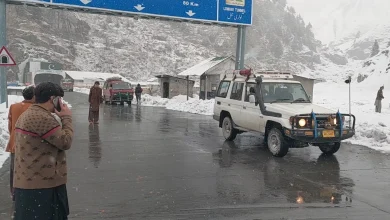
By: Tahseenullah
In many corners of Pakistani academia, the landscape of technology education presents a stark contrast to the evolving digital reality. For countless students, the chance to develop essential digital skills remains elusive, relegated to the status of a luxury rather than a necessity. While urban elite schools may afford their students some exposure to computers and the vast expanse of the internet, a starkly different narrative unfolds in the rural hinterlands, where the majority of students languish far behind, disconnected from the digital frontier.
The repercussions of this gaping chasm in technology education reverberate across multiple facets of Pakistani society. Firstly, it truncates the potential career pathways available to students. In the contemporary job market, even non-technical roles demand a modicum of digital literacy and familiarity with technology tools. Pakistani students, bereft of these essential skills, find themselves encumbered, locked out of numerous opportunities.
Furthermore, the absence of a technologically proficient workforce exacts a toll on economic development. Nations endowed with robust technology education systems become magnets for foreign investments and incubators of innovation. Pakistan’s tech education deficit diminishes its capacity to compete robustly on the global economic stage, a hindrance to its own progress.
The technology gap also acts as a catalyst, exacerbating the already yawning chasm of educational inequality. Those fortunate enough to afford private technology coaching gain an insurmountable lead over their less fortunate peers, perpetuating socio-economic disparities and restraining social mobility.
Moreover, in an era riddled with cyber threats and digital disinformation, inculcating students with knowledge about online safety and digital literacy is not merely desirable but imperative. A lack of proper education renders students susceptible to cyberattacks and manipulation, leaving them defenseless in the digital wilderness.
Also read: lack of grounds, facilities hurdles to youth’s development in sports
Addressing this profound challenge necessitates a multi-pronged approach:
Firstly, Pakistani authorities must undertake a sweeping transformation of the education curriculum, weaving technology education into its fabric at all educational tiers. This endeavor should encompass not just the rudimentary aspects of computer skills but extend to programming, digital literacy, and data analysis.
Secondly, to effectively disseminate technology education, teachers themselves require comprehensive training. Educational institutes must step up to the plate and offer educators thorough technology-focused training programs.
Thirdly, forging partnerships between the public sector and private industry can help bridge the technology education divide. Tech companies can lend their expertise, resources, mentorship programs, and internship opportunities to eager students.
Fourthly, rural areas merit special attention, with concerted efforts to provide technology education in these remote regions. Leveraging mobile technology and e-learning platforms can effectively extend the reach of education to even the most far-flung students.
Lastly, public awareness campaigns should underscore the significance of digital literacy, while also educating parents about the manifold advantages of technology education for their children.
The dearth of technology education in Pakistani schools transcends mere educational concerns; it strikes at the heart of economic growth, social equality, and national competitiveness. Urgency is paramount, and Pakistan must act swiftly and resolutely to rectify this situation. By investing ardently in technology education and ensuring its accessibility to all, Pakistan can empower its youth with the indispensable skills required to navigate the digital epoch and contribute to a brighter, technologically advanced future for the nation.
The author is associated with Khyber News as a news anchor.
Twitter @tahseentasir






